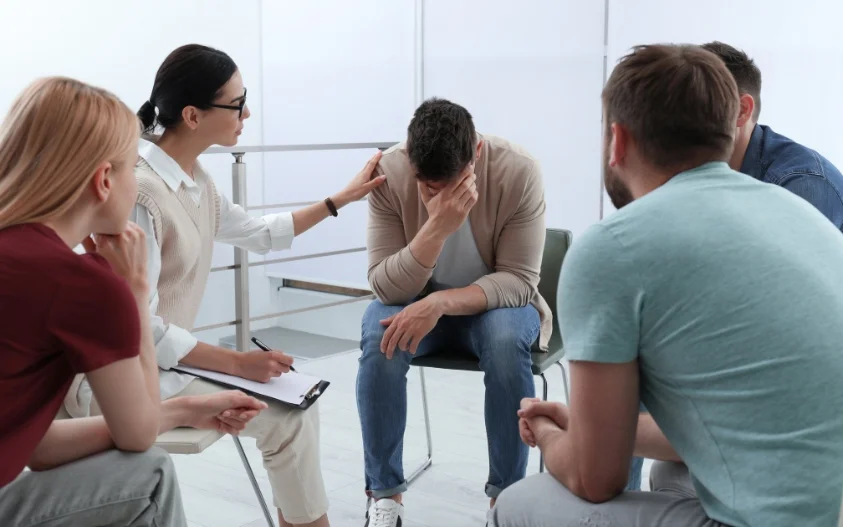24/7 Helpline:
(866) 899-221924/7 Helpline:
(866) 899-2219
Learn more about Depression Treatment centers in Starke County

Other Insurance Options

Medical Mutual of Ohio

Magellan Health

Kaiser Permanente

WellPoint

UMR

UnitedHealth Group

Multiplan

BHS | Behavioral Health Systems

WellCare Health Plans

Evernorth

ComPsych

Excellus

CareFirst

Self-pay options

Choice Care Network

GEHA

Sutter

Ceridian

Aetna

Providence










Wiregrass Apartments – Mental Health Apartments
Wiregrass Apartments – Mental Health Apartments is a private rehab located in Hamlet, North Carolina...

Sandhills Alternative Academy
Sandhills Alternative Academy is a private rehab located in Hamlet, North Carolina. Sandhills Altern...

Family First Support Center
Family First Support Center offers outpatient and intensive services for individuals with alcohol an...

























